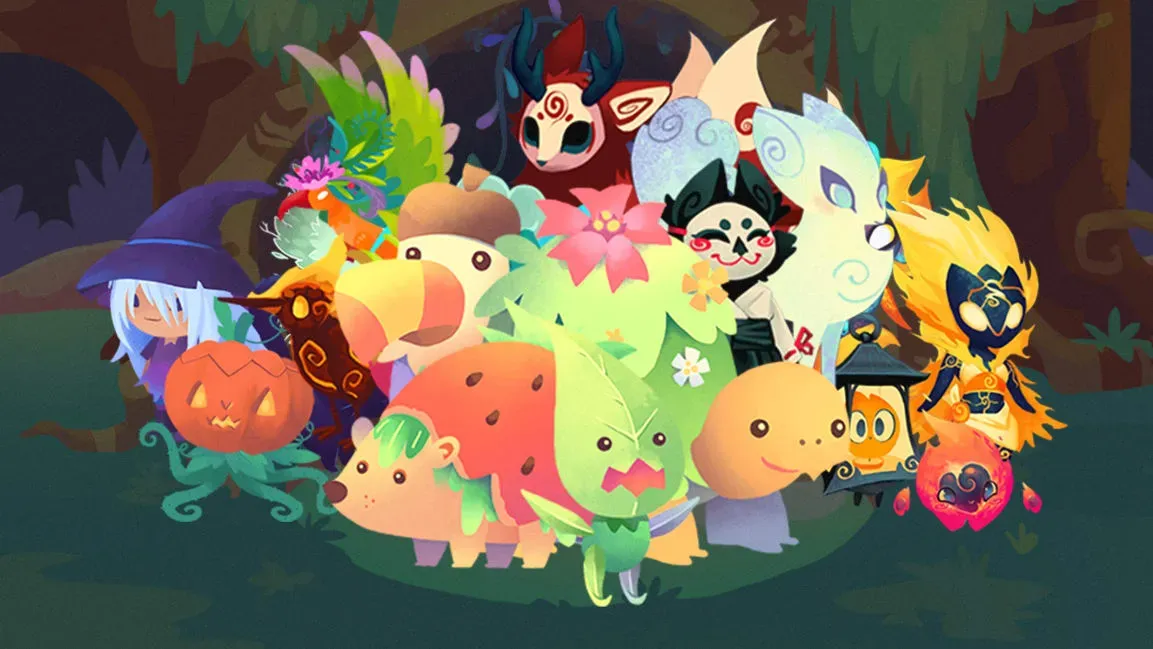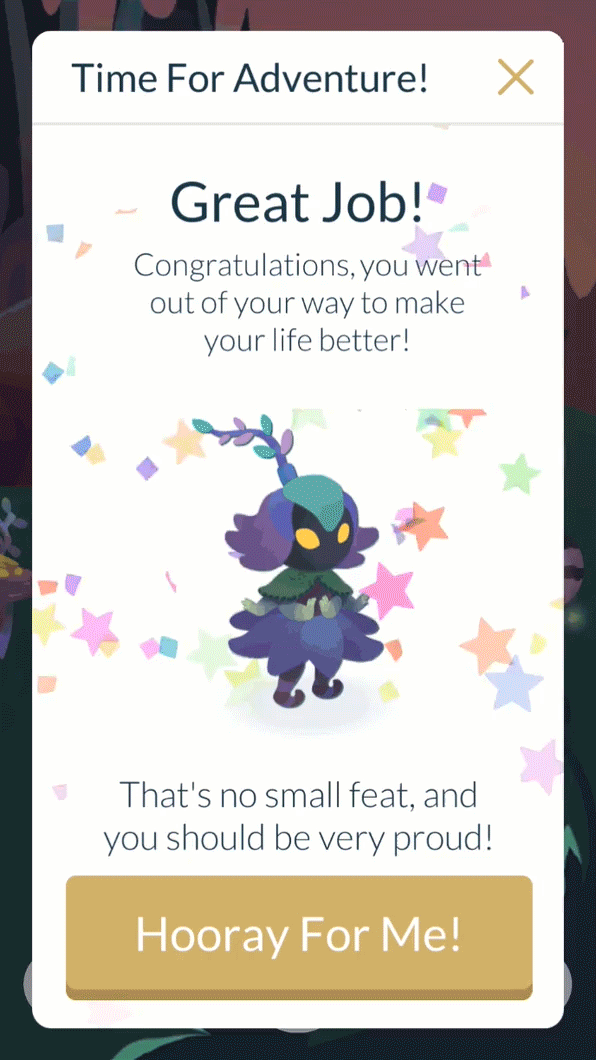Making Self-Care Fun
How MIT are leveraging game design principles to combat depression

Here’s an unbelievable statistic: there are over 2.5 billion active gamers around the world. With an estimated population of about 7.6 billion people, that means that approximately one third of the entirety of Earth’s population plays games. Long gone are the days of gaming being for the nerds and the geeks of the world; the medium is being welcomed with open arms around the globe.
In 2018, the total gaming market was predicted to be worth around $134.9 billion. To put that into perspective, it’s more than the lifetime gross of the top 20 best selling movies of all time combined, with over $100 billion left to spare. According to Techjury, over 50% of the global games market came from mobile games in 2019. Literal millions of people play these games every day, whether it be jumping into a game of Fortnite or Call of Duty Mobile, or killing time on the bus with some Candy Crush.
So why is it then that within the industry, the term “mobile gaming” is met with collective eye-rolling?
It would seem the fingers can be pointed in multiple directions: mobile games tend to be microtransaction-filled nightmares, they’re purposefully and deceitfully addicting, and they have utterly saturated the market with over 300,000 games available on the Google Play store alone. They often tend to feel like rushed, incomplete cash grabs rather than the crafted experiences we’ve come to love and cherish.
There are exceptions to every rule, of course.
The Grand Theft Auto series lends itself surprisingly well to mobile screens, along with games like the original Sonic and Doom, and no one can deny the incredible splash Pokemon GO! made in the market. For the most part though, mobile gaming has been seen as the redheaded stepchild of the industry for many years. But what if a game used those addicting qualities for good? What if a game decided to use the tricks the mobile market has adapted to make people feel better?
The Guardians, a free-to-play mobile game designed by Craig Ferguson and Sara Taylor along with a small group at MIT, is attempting to answer that question.
The point of The Guardians is a fairly simple one to grasp, but a difficult one to implement. The Guardians is attempting to use the rewarding, addictive nature of the typical mobile game to establish new, healthy hobbies for individuals who struggle to break from depression cycles. It aims to complete this monumental task using what’s known as “behavioral activation,” a therapy in which people are asked to choose and perform a meaningful and positive task, and then reflect on it. Behavioral activation focuses on the idea that our depression may be cognitive (chemical imbalances in the brain), but it also relies on our behaviors. If someone suffering from depression is unable to perform simple tasks — such as maintaining personal hygiene or their social life, known as Anhedonia — it’s very likely they aren’t receiving any positive reinforcement for completing said task, making it even harder. The idea behind behavioral activation is that the cycle is broken and, with positive reinforcement and personalized activities, the will to get these tasks done returns. Designers at MIT saw this therapy as an opportunity to create a game that’s able to help people fight their depression in an accessible and easy way.

The game itself is a fairly traditional mobile game: the player collects and trains pets while gathering resources in order to send pets on missions. Each mission requires certain types of skills, and completing a mission in that skill category will reward pets with experience points in those skills. Along with experience points, the player is able to collect spirit gems, pet activities, outfits, gold, and items in order to make their missions easier. What is the point of all these missions? To stop an evil villain, of course! The Guardians of the Realm have been imprisoned, and it’s up to the player and their elite team of pets to defeat the evil villain and restore peace to the Realm. This is done through inspiring the pets to join your side, and this is where The Guardians psychological reasons for existing are exposed. Every day you’re asked to complete an “adventure” in order to gain more experience and items, as well as inspiring your pets. However, these adventures don’t take place in the virtual space, they take place in your own life.

The Guardians can suggest an adventure, or you can make a custom one yourself. There’s a huge list of activities you can choose from to partake in these adventures. Each adventure is split up into three difficulty levels; “Take It Easy,” “Normal Mode,” or “Challenge Me!”. From there, you select one of six categories: The Basics, Arts & Crafts, Fitness, Fun, Social, and Custom. The Basics includes small chores that are easy and rewarding to accomplish, like doing laundry, vacuuming, or de-cluttering a drawer. Arts & Crafts has a variety of artsy activities that don’t necessarily take a huge amount of commitment. Things like doing origami, writing a 250 word short story, or doing some sketch sessions. Fitness is exactly what it says on the tin; take a walk, go for a jog, do some squats or pushups, or even learning dance moves. Fun encompasses relatively easy assignments such as eating somewhere new, taking an online class, or going to the park. Social — which can be incredibly difficult for people suffering from depression — incorporates doable exercises like video chatting with friends or family, sending someone a perfect GIF for a conversation, or (if you’re feeling up to it) meeting up with someone for coffee or lunch. The difficulty you select will dictate how involved the activities are. For example, if you pick “Take It Easy” for fitness, you’ll be prompted to take a short walk, whereas if you select “Challenge Me!,” the short walk will change to a twenty minute jog. After making your selection, the app then gives you time to complete your task. After completion, you’ll be requited with an award that helps you to unlock more equipment and inspiration for your pets, thus advancing you through the game.

One thing The Guardians does superbly is refusing to make you feel like it’s absolutely mandatory to complete these tasks. The game is totally accessible whether you partake in these adventures or not as they’re only there to help you. Due to this, severe depression attacks won’t spell disaster for your progress. The Guardians isn’t trying to tell you it’s not okay to be depressed, or that your beloved pets will suffer because you’re having an especially hard day. Instead, it’s telling you that it’s alright to have a bad day, and that your adventures can wait until tomorrow, if necessary. For some people, however, they physically won’t be able to wait until tomorrow. This can be attributed to the habitual quality of The Guardians’ rewards system since, like most mobile games, the rewards you get for completing challenges can be addicting. Dispatching your pets to do missions is a relatively short endeavor as most missions can be completed in under a minute. This creates the “just one more” phenomenon. It becomes legitimately difficult to put down because you want to see that rewards screen pop up one more time, you want to get the last bit of necessary gold, or you want to get the next outfit. On top of this, the gambling nature of mobile games is obviously present in The Guardians due to how the rewards are given. Reward screens are titillating and invigorating as bright colors and happy noises affront the senses at the completion of every mission and adventure. When actually receiving a reward, you must tap brightly colored treasure chests, opening with a satisfying *pop* accompanied with lots of confetti. Mobile games tend to get flack for these sort of predatory mechanics as they’re typically seen as nothing more than a ploy to get as many people to dump cash into that game as possible. However, due to the self-help nature of The Guardians, the same effort is put into getting you up and out of bed, helping your pets and getting your adventures done. It creates an environment that incentivizes participating in real world activity as opposed to participating in emptying your real world wallet.
It is imperative to recognize that The Guardians is more of an experiment than a legitimate treatment. Some studies show that behavioral activation is as successful as more traditional cognitive behavioral therapies, but it isn’t an end all cure. If you are suffering from depression, especially if it’s severe, it’s vital you seek help to get you through it. Still, The Guardians is trying to use mobile gaming for good, and may succeed in being the extra push you need to get on your feet and try to leap the smothering mental hurdles depression makes you face every day. While it won’t replace a therapist, The Guardians is an easy, charming, free, and — importantly — respectful use of your time. The developers at MIT have attempted to do something special with The Guardians, and here’s to hoping more developers follow suit. Depression is an incredibly difficult battle facing the world today, and every attempt to quell its influence deserves to be heralded. The fight against mental illness is one of the most important fights in human history, and games such as The Guardians may be exactly what we need to start gaining the upper hand.
